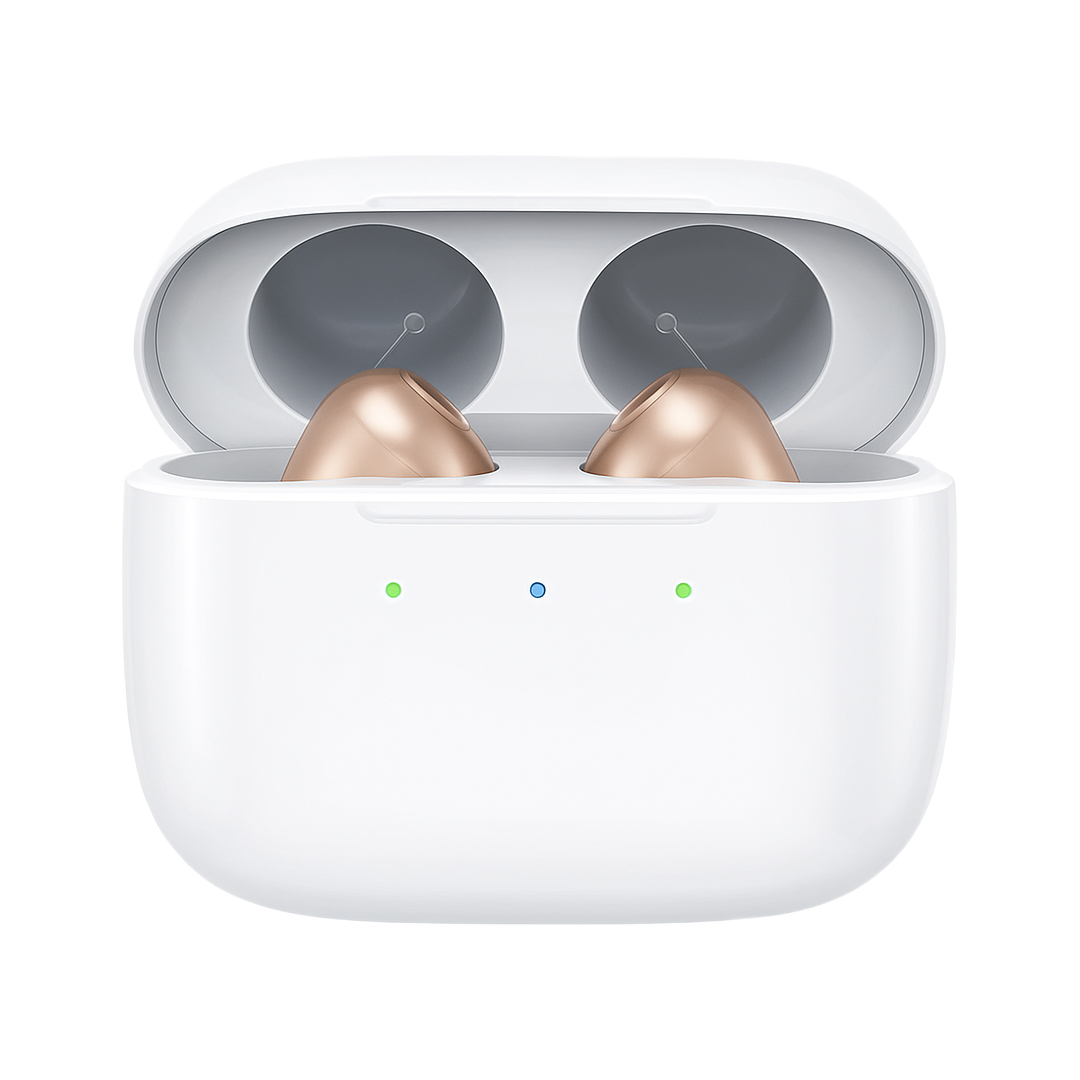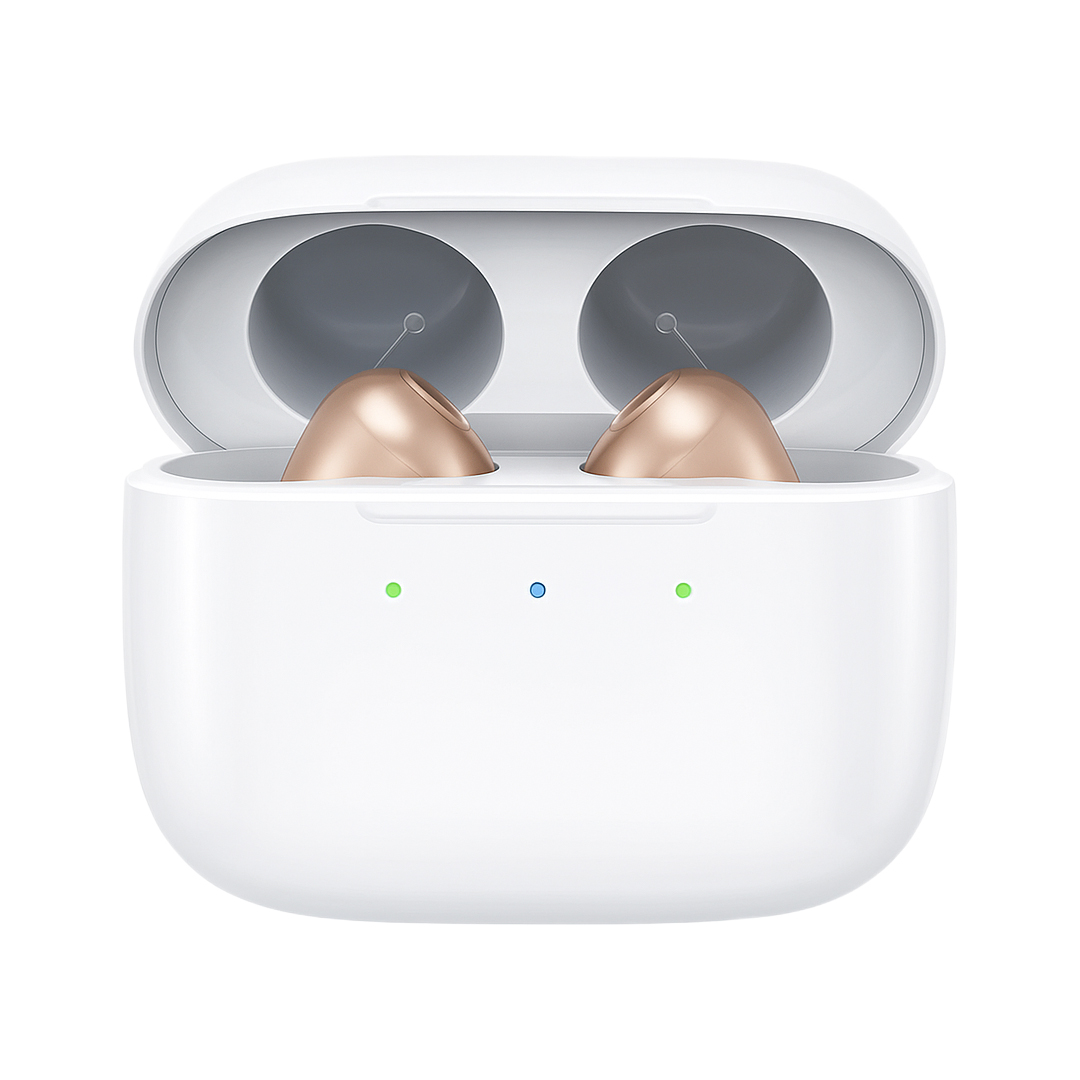Protecting Your Hearing at Concerts and Music Festivals
Who says rock and roll is just for the young? Whether you're reliving your youth at a classic rock reunion tour, enjoying a jazz festival under the stars, or accompanying grandchildren to their first big concert, live music remains one of life's great pleasures. But here's the thing about those unforgettable performances—they can literally be unforgettable in ways you don't want, leaving you with ringing ears or permanent hearing damage.
The good news? You can have your music and hear it too, with just a little preparation and know-how.
The Reality of Concert Volume
Let's start with some eye-opening numbers. Most concerts clock in between 100-115 decibels, with some rock and electronic music events pushing even higher. To put that in perspective, a typical rock concert is about as loud as a chainsaw running full throttle—except you're standing there for two to three hours, not just a few minutes.
Even more "mellow" performances can surprise you. That intimate jazz club might seem quieter than Madison Square Garden, but amplified music in a small, enclosed space can easily reach 95-100 decibels. Symphony orchestras, with their powerful brass sections and thunderous percussion, regularly hit 110 decibels during climactic passages.
Here's what makes these levels particularly concerning: remember that 85-decibel safety threshold we discussed? At 100 decibels, you're already at the point where safe exposure drops to just 15 minutes. Most concerts last at least two hours—that's eight times longer than what's considered safe.
Why Concerts Hit Different (And Harder)
Concert sound isn't just loud—it's designed to be physically felt. Those massive speaker arrays and subwoofers create sound waves that you experience in your chest, your bones, and yes, your ears. This immersive experience is part of what makes live music so thrilling, but it also means the sound energy is hitting your delicate inner ear structures with considerable force.
Modern sound systems are more powerful than ever before. What would have been the main speakers for an entire venue 30 years ago might now be just the monitors pointing back at the musicians on stage. This technological advancement means today's concerts can reach volumes that would have been impossible in the "good old days."
The Festival Challenge
Music festivals present unique hearing challenges. You're not just dealing with one loud performance—you're potentially exposed to high decibel levels for entire days, sometimes across multiple days. Factor in the outdoor acoustics, competing stages, and the tendency to position yourself closer to smaller acts, and you've got a recipe for serious auditory overload.
Festival-goers often underestimate the cumulative effect of this exposure. Your ears don't reset between acts; damage accumulates throughout the day. By the time Sunday evening rolls around, you might have subjected your hearing to the equivalent of several weeks' worth of unsafe noise exposure.
The Myth of "Getting Used to It"
Many concert veterans believe their ears have adapted to loud music over the years. "I've been going to shows for decades and I'm fine," they'll say. But here's the uncomfortable truth: what feels like adaptation is often actually progressive hearing loss. Your ears aren't getting tougher—they're getting damaged, and you're simply not noticing the gradual decline.
This is particularly relevant for older adults, who may already be experiencing age-related hearing changes. The combination of natural hearing loss and concert-induced damage can accelerate the problem significantly.
Smart Protection Strategies
The Right Earplugs Make All the Difference
Forget those foam earplugs from the hardware store—they'll muffle the music and make everything sound like it's coming from underwater. Instead, invest in musician's earplugs or high-fidelity ear protection. These specially designed plugs reduce volume while maintaining sound quality, so you can still enjoy the nuances of the performance.
Quality musician's earplugs typically reduce sound by 15-25 decibels, which can bring a 105-decibel concert down to a much more manageable 80-85 decibels. The music will still be plenty loud and exciting, but your ears won't be screaming at you the next morning.
Strategic Positioning
Your location in the venue matters more than you might think. Sound levels can vary by 10-15 decibels depending on where you stand. The area directly in front of the speakers is obviously the loudest, but you might be surprised to learn that the very back of the venue can sometimes be noisier than the middle sections due to sound reflection and amplification.
Generally, the sound engineer's mixing board is positioned at the spot where the audio sounds best and is most balanced. If you can find a spot near this area, you'll often get great sound quality at a slightly lower volume.
Take Strategic Breaks
Your ears need recovery time during extended exposure to loud sounds. Step outside for a few minutes between sets, visit the merchandise booth, or simply move to a quieter area of the venue. These brief respites can significantly reduce your overall exposure and help prevent temporary hearing damage from becoming permanent.
The 60-60 Rule for Recorded Music
While this applies more to listening at home, it's worth mentioning: when using headphones or earbuds, keep the volume at 60% of maximum and limit listening time to 60 minutes at a stretch. This rule becomes even more important if you're attending concerts regularly.
Technology Solutions
Modern hearing protection has come a long way. Some high-end earplugs now include filters that automatically adjust to sound levels, providing more protection when things get really loud and less when the volume drops. There are even smartphone apps that can measure decibel levels in real-time, helping you make informed decisions about when to use protection.
For the tech-savvy music lover, noise-canceling headphones can be surprisingly effective at concerts. While they're not specifically designed for this purpose, they can significantly reduce ambient noise levels while still allowing you to enjoy the music.
When to Seek Professional Help
If you experience ringing in your ears (tinnitus) that lasts more than 24 hours after a concert, or if you notice muffled hearing that doesn't clear up within a day or two, it's time to see an audiologist. These symptoms can indicate temporary or permanent hearing damage that needs professional evaluation.
Regular hearing tests are particularly important if you're a frequent concert-goer. Annual hearing evaluations can catch changes early and help you adjust your protection strategies accordingly.
The Social Aspect
One concern many people have about wearing ear protection at concerts is that it might seem antisocial or suggest they're too old to handle the volume. Let's flip that script: taking care of your hearing is a sign that you're wise enough to want to keep enjoying music for years to come.
You might be surprised to find that many fellow concert-goers, especially those who've been around the music scene for a while, are also using protection. It's becoming increasingly common and socially acceptable.
Making It Enjoyable
The goal isn't to eliminate all risk—it's to find the sweet spot where you can fully enjoy the musical experience while protecting your long-term hearing health. With proper protection, you can sing along to your favorite songs, feel the bass in your chest, and experience all the energy and emotion of live music without paying the price later.
Remember, protecting your hearing today means you'll still be able to enjoy music tomorrow. Whether it's your grandchild's school concert, a quiet jazz evening, or your favorite band's farewell tour, keeping your hearing intact ensures these experiences remain as rich and meaningful as they're meant to be.
The Bottom Line
Live music is one of life's great joys, and there's no reason to give it up as you get older. With the right preparation and protection, you can continue to enjoy concerts and festivals while keeping your hearing healthy. The key is being proactive rather than reactive—by the time you notice hearing damage, it's often too late to reverse.
So go ahead, buy those concert tickets. Just remember to pack your earplugs along with your enthusiasm. Your future self will thank you for the foresight, and you'll be able to keep rocking for years to come.



